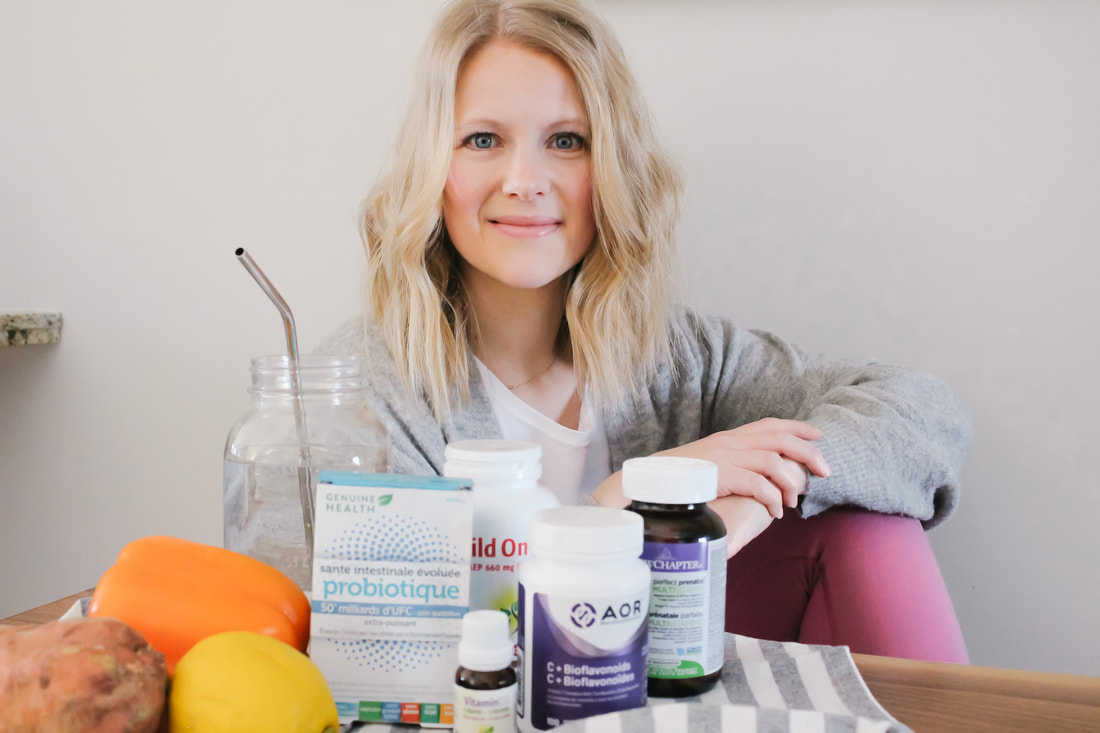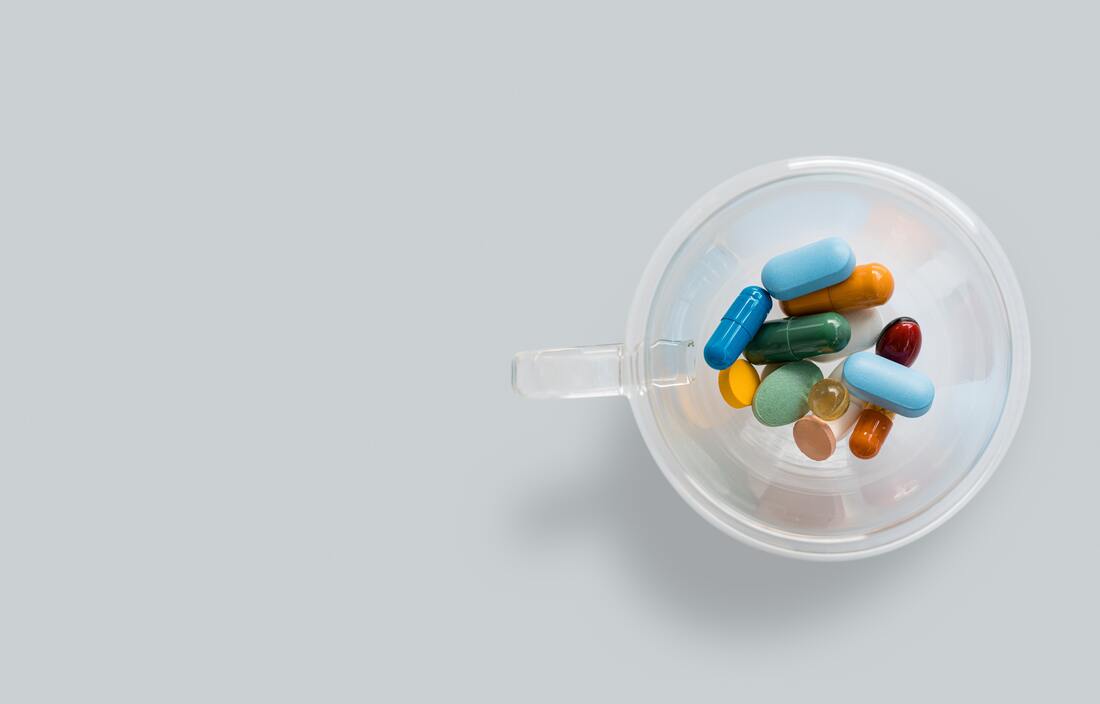|
Nutritional supplementation is a question that comes up a lot in the health and nutrition world. Should you be taking any? Which ones? How much? Which brands? Supplements are everywhere: from the multivitamin you can pick up at the grocery store, to the weird brown smelly tincture your naturopath recommends (speaking from experience). But how do you know which supplements are really necessary and which ones you can leave on the shelf? Before diving into this discussion, it's important to note the two kinds of nutrients (all of which can be supplemented if necessary): essential and nonessential. Essential nutrients are those found in food that are important in order for our bodies to function optimally. It's important that we get them through diet, as our bodies do not have the ability to create them on their own. Essential nutrients include vitamins, minerals, essential fatty acids, and amino acids. Since these nutrients are found in food, we don't necessarily require supplements (think: fish oil, for example). However, many of us don't quite hit the mark when attempting to consume the proper amount of these nutrients for our age and size. Before you turn to supplementation, however, turn to whole foods. Food is a powerful tool. Don't underestimate what it can do for you and your health. Try to find food sources rich in the essential nutrient you are lacking. It's always better to go straight to the source, and quite honestly, it's simpler too. There are far fewer factors to consider when choosing whole foods over a supplement. Amino acids, for example, are proteins. So work to increase your daily protein consumption through foods like pasture raised organic meats. Lacking in vitamin A? Look for vegetables like sweet potato or pumpkin to boost your A consumption (but make sure you're also getting enough D. The one doesn't work without the other. Nutrients are tricky like that). That being said, it's not always possible to get what we need through whole foods. Maybe you're on the road a lot for work, or vacationing in an area where certain nutrient dense foods are difficult to find. In that case, supplementation can be a great strategy to ensure your body continues to get what it needs. Maybe you like to travel with a high quality protein powder and powdered greens to make quick shakes on the run. Many North American's are deficient in several micronutrients. There are so many to be conscious of, that a multivitamin and/or multimineral may be the route to go, purely for simplicity reasons. Cod Liver Oil is an incredible source of vitamin A and EFA's. Find a reputable brand (Like Nordic Naturals or Genestra) to ensure purity. .And remember: just because you begin taking a supplement, doesn't necessarily mean that you need it on the daily. It can be something you keep on hand for those days you know you're going to come up short. They can also be something you rotate. Our bodies are very intelligent and adaptable. Rotating certain supplements can help ensure their effectiveness. Nonessential nutrients are nutrients that the body is able to produce on its own, assuming you are upholding a quality diet. They also include nutrients that are not necessary for carrying out any physiological functions. There are far more nutrients that fit into this category than the latter. You may recognize many of them as buzz words in the health and fitness world, such as creatine, glutamine, and green tea extract. Some of these supplements may have positive benefits when used correctly to enhance a particular function. However, many have also gained popularity simply through crafty marketing strategies by the supplement industry. We may be talking about health... but they're talking about money. I would suggest really doing your research before taking any supplement, but particularly those in the nonessential category. Speak to a professional before deciding that supplementation is the way to go. Additionally, there are a lot of garbage supplements out there. In many cases, you may end up peeing out your hard earned money, as there wasn't much there to absorb in the first place. Find out if life satisfaction is impacting your eating behavious and overall health. Creating awareness might be the ticket to making better food choices.Do your homework and make sure you are buying from a supplement company you trust. One strategy I recommend is sticking to brands that a healthcare professional (educated in the supplement world) has recommended, like a naturopath of functional doctor. Generally, you can trust their professional judgement knowing they have done their due diligence. Then, when hunting for a new supplement, keep your eyes peeled for those preferred brands. Supplement quality control can be a little bit sketchy, particularly in the United States, where the FDA does not test the effectiveness, safety, or purity of a supplement product. Here in Canada, we can relax a little bit, as products must be approved by the Natural Health Products Directorate (NHPD) before hitting the market. Licensing and manufacturing practices are more strictly regulated, which helps the consumer feel a little more confident in the the information on the label. If you're hunting for a quality supplement, and still feeling overwhelmed, another site to try is Lab Door. Lab Door is an excellent site to help you research and find the highest quality of supplements available. This company does extensive testing on various products and uses a ranking system to determine the quality of each one. Although you won't find every brand on their site, it's definitely a great place to start. You can simply begin by choosing the type of supplement you're looking for (a multivitamin, for example) and Lab Door will give you their top ten suggestions (#1: Garden of Life, Vitamin Code for Men). Or, you can search up a particular supplement and brand in question. If you are an athlete looking for a particular supplement, or a coach thinking of recommending a supplement to a client, you should first ensure that it is not on the banned substance list for said activity. You can check out www.wada-ama.org for that list. Supplements is a topic that really deserves a 5 part series. There is so much that can be said and even more that can be debated. If I tried to cover it all, we'd be here all day. So I will leave you with this information for now. However, if you have any questions, feel free to shoot me an email and we can chat further. I would love to help you out on your supplement journey. Be sure to follow me on Instagram for more health and wellness tips + healthy recipes for the whole fam.
1 Comment
|
|



 RSS Feed
RSS Feed